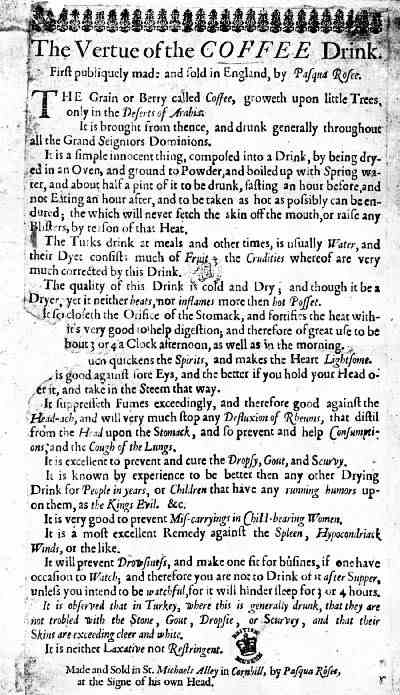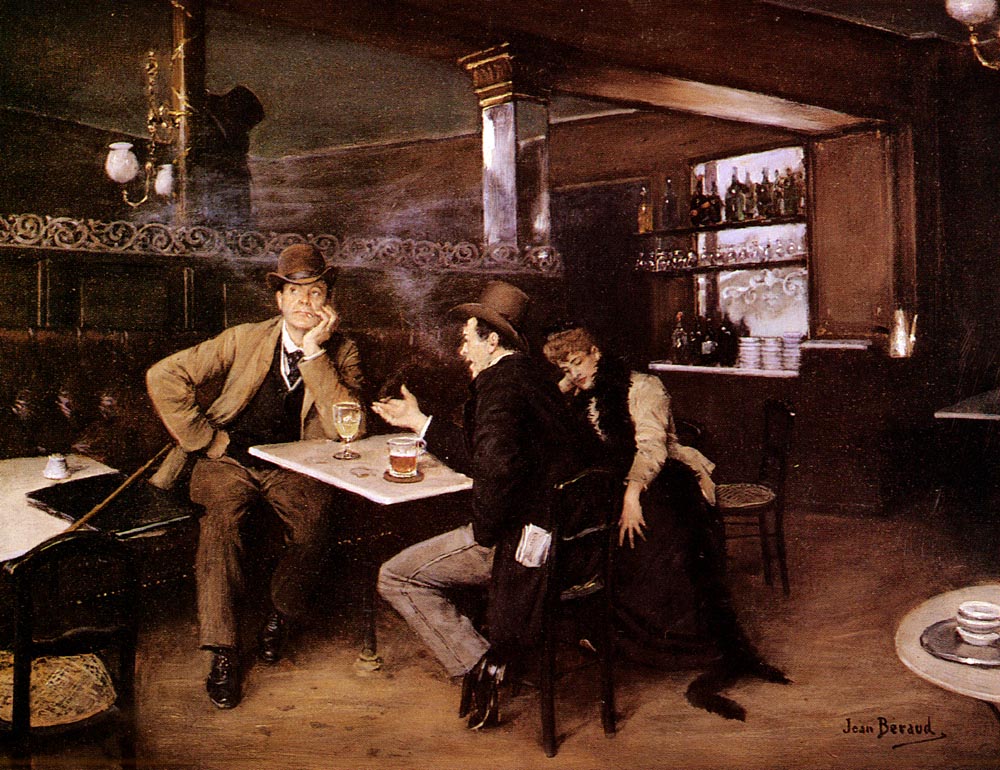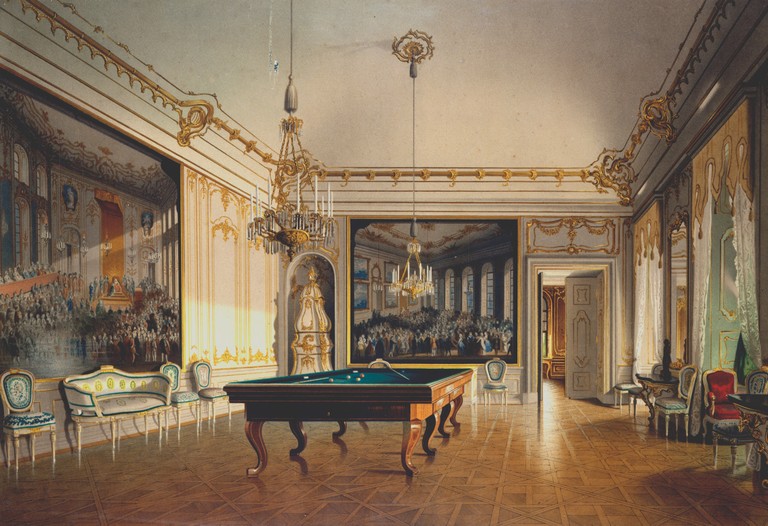|
Parisian Café
Parisian cafés are a type of café found mainly in Paris. Purpose Parisian cafés typically serve as a center of social and culinary life in Paris. They have existed since the 17th century and can serve as a meeting place, neighborhood hub, conversation matrix, rendez-vous spot, and a place to relax or to refuel for Parisian citizens. Typical Parisian cafés are not coffee shops, instead generally coming with a complete kitchen offering a restaurant menu with meals for any time of the day. Many also feature a full bar and even a wine selection. Among the drinks customarily served are the "grande crème" (large cup of white coffee), wine by the glass, beer ("un demi", half a pint, or "une pression", a glass of draught beer), "un pastis" (made with aniseed flavour spirit), and "un espresso" (a small cup of black coffee). In many cases, the café sometimes doubles as a " bureau de tabac", a tobacco shop that sells a wide variety of merchandise, including metro tickets and prepaid ... [...More Info...] [...Related Items...] OR: [Wikipedia] [Google] [Baidu] |
Café De La Paix Paris France
A coffeehouse, coffee shop, or café is an establishment that primarily serves coffee of various types, notably espresso, latte, and cappuccino. Some coffeehouses may serve cold drinks, such as iced coffee and iced tea, as well as other non-caffeinated beverages. In continental Europe, cafés serve alcoholic drinks. A coffeehouse may also serve food, such as light snacks, sandwiches, muffins, fruit, or pastries. Coffeehouses range from owner-operated small businesses to large multinational corporations. Some coffeehouse chains operate on a franchise business model, with numerous branches across various countries around the world. While ''café'' may refer to a coffeehouse, the term "café" generally refers to a diner, British café (colloquially called a "caff"), "greasy spoon" (a small and inexpensive restaurant), transport café, teahouse or tea room, or other casual eating and drinking place. A coffeehouse may share some of the same characteristics of a bar or restaurant, ... [...More Info...] [...Related Items...] OR: [Wikipedia] [Google] [Baidu] |
Pasqua Rosée
Pasqua Rosée was a 17th-century servant who opened the first coffee-house in London and possibly Britain. He was born into the ethnic Greek community of the Republic of Ragusa (now southernmost Croatia). In 1651 he became the servant of Daniel Edwards, an English merchant of the Levant Company who was living in Smyrna in the Ottoman Empire (now Turkey); part of Rosée's duties included preparing and serving his daily coffee. In late 1651 Edwards returned to Smyrna, taking Rosée with him. The number and frequency of friends visiting Edwards to drink coffee with him disrupted his social life, and he set up Rosée as the proprietor of a coffee-house near the Royal Exchange. As he was not a freeman of the City of London he was not able to trade; accordingly Edwards made his father-in-law's former apprentice, Christopher "Kitt" Bowman, a freeman of the City, join Rosée as a partner. The last known reference to Rosée was in 1658, after which Bowman ran the coffee-house with his wi ... [...More Info...] [...Related Items...] OR: [Wikipedia] [Google] [Baidu] |
Noël Riley Fitch
Noël Riley Fitch is a biographer and historian of expatriate intellectuals in Paris in the first half of the 20th century. She is the author of several books on Paris (''Literary Cafes of Paris'', ''Walks in Hemingway's Paris'') as well as three biographies: ''Sylvia Beach and the Lost Generation'' (1983), translated into Japanese, Spanish, German, Italian and French; ''Anaïs: The Erotic Life of Anaïs Nin'' (1993), published in French, German, Spanish, Portuguese, and Polish, and nominated for the Grand prix des lectrices de Elle; and she is the first authorized biographer of Julia Child, with ''Appetite for Life: the Biography of Julia Child'' (1997). The Ernest Hemingway book, a biographical and geographical study of his Paris years, has been published in Dutch, the Cafés of Paris book in Dutch and German. Early life Fitch was born in 1937 in New Haven, Connecticut of New England parents (John E. Riley and Dorcas Tarr) and raised with two younger sisters in the Snake Riv ... [...More Info...] [...Related Items...] OR: [Wikipedia] [Google] [Baidu] |
Paris Under Napoleon
First Consul Napoleon Bonaparte moved into the Tuileries Palace on 19 February 1800 and immediately began to re-establish calm and order after the years of uncertainty and terror of the Revolution. He made peace with the Catholic Church; masses were held again in the Cathedral of Notre Dame, priests were allowed to wear ecclesiastical clothing again, and churches to ring their bells. To re-establish order in the unruly city, he abolished the elected position of the Mayor of Paris, and replaced it with a Prefect of the Seine and a Prefect of Police, both appointed by him. Each of the twelve arrondissements had its own mayor, but their power was limited to enforcing the decrees of Napoleon's ministers. After he crowned himself Emperor on December 2, 1804, Napoleon began a series of projects to make Paris into an imperial capital to rival ancient Rome. He built monuments to French military glory, including the Arc de Triomphe du Carrousel, the column in Place Vendôme, and ... [...More Info...] [...Related Items...] OR: [Wikipedia] [Google] [Baidu] |
Viennese Coffee House
The Viennese coffee house (german: das Wiener Kaffeehaus, bar, as Weana Kafeehaus) is a typical institution of Vienna that played an important part in shaping Viennese culture. Since October 2011 the "Viennese Coffee House Culture" is listed as "Intangible Cultural Heritage" in the Austrian inventory of the "National Agency for the Intangible Cultural Heritage", a part of UNESCO. The Viennese coffee house is described in this inventory as a place, "where time and space are consumed, but only the coffee is found on the bill." Viennese coffee house culture The social practices, rituals, and elegance create the very specific atmosphere of the Viennese café. Coffee Houses entice with a wide variety of coffee drinks, international newspapers, and pastry creations. Typical for Viennese Coffee Houses are marble tabletops, Thonet chairs, newspaper tables and interior design details in the style of Historicism. The Austrian writer Stefan Zweig described the Viennese Coffee House ... [...More Info...] [...Related Items...] OR: [Wikipedia] [Google] [Baidu] |
Sidewalk Cafe
The SideWalk Cafe was a music venue and restaurant/cafe in East Village, New York City founded in 1985. It became a known venue for its underground music scene, and in particular, was known as being the center for Anti-folk in the United States. It offered an eclectic mix of local and national acts ranging from DIY, avant garde music, indie rock, and jazz to pop music and electronic music. The venue also hosted poetry readings, comedy and live-band karaoke. The Local East Village, at the time part of The New York Times, referred to the SideWalk Cafe and its music scene as a "gift to the neighborhood". A number of well-known acts performed at the Sidewalk at the beginning of their career including Regina Spektor, Lana Del Rey, Hamell on Trial, Lach, The Moldy Peaches. The Sidewalk Cafe was also home to an open mic night that was one of the oldest and largest traditional open mics in the city, garnering the name "the king of NYC open-mic nights." The open mic was founded b ... [...More Info...] [...Related Items...] OR: [Wikipedia] [Google] [Baidu] |
Brasserie
In France, Flanders, and the Francophone world, a brasserie () is a type of French restaurant with a relaxed setting, which serves single dishes and other meals. The word ''brasserie'' is also French for "brewery" and, by extension, "the brewing business". A brasserie can be expected to have professional service, printed menus, and, traditionally, white linen—unlike a bistro which may have none of these. Typically, a brasserie is open Wednesday to Sunday and serves the same menu all day. A classic example of a brasserie dish is steak frites. Etymology The term ''brasserie'' is French for "brewery", from Middle French ''brasser'' "to brew", from Old French ''bracier'', from Vulgar Latin ''braciare'', of Celtic origin. Its first usage in English was in 1864. The origin of the word probably stems from the fact that beer was brewed on the premises rather than brought in: thus an inn would brew its own beer as well as supply food and invariably accommodation too. In 1901 ''Cham ... [...More Info...] [...Related Items...] OR: [Wikipedia] [Google] [Baidu] |
Bistro
A bistro or bistrot , is, in its original Parisian incarnation, a small restaurant, serving moderately priced simple meals in a modest setting. Bistros are defined mostly by the foods they serve. French home-style cooking, and slow-cooked foods like cassoulet, a bean stew, are typical. History Bistros likely developed out of the basement kitchens of Parisian apartments where tenants paid for both room and board. Landlords could supplement their income by opening their kitchen to the paying public. Menus were built around foods that were simple, could be prepared in quantity and would keep over time. Wine and coffee were also served. Today, bistros are mostly still part of the hospitality industry. They are often connected with hotels, bars, and pubs. They still often serve cheaper, simplified menus or menus that are not tied to a specific cultural cuisine. Etymology The etymology is unclear, and is presumed to come from a regional word: bistraud, bistingo, bistouille, or b ... [...More Info...] [...Related Items...] OR: [Wikipedia] [Google] [Baidu] |
Mariana Starke
Mariana Starke (1761/2–1838) was an English author. She is best known for her travel guide to France and Italy which served as a popular companion for British travellers to the Continent in the early nineteenth century. She also wrote plays and poetry early in her career but was discouraged by harsh reviews. She was unmarried but sometimes referred to as Mrs. Starke, as was common at the time. Life and writing career Starke's mother was Mary (née Hughes) and her father was Richard Starke, governor of Fort St George in Madras (now known as Chennai). Starke grew up in India and used that country as a background for her plays ''The Sword of Peace'' and ''The Widow of Malabar''. Starke subsequently lived in Italy for an extended period, between 1792 and 1798, to attend a sick relation, and this experience formed the basis for her later writing. After the end of the Napoleonic Wars, Starke returned to Italy and devoted the rest of her life to continual revisions of her travel serie ... [...More Info...] [...Related Items...] OR: [Wikipedia] [Google] [Baidu] |
Café-chantant
(French: lit. 'singing café'), , or , is a type of musical establishment associated with the Belle Époque in France. The music was generally lighthearted and sometimes risqué or even bawdy but, as opposed to the cabaret tradition, not particularly political or confrontational. Although there is much overlap of definition with cabaret, music hall, vaudeville, etc., the was originally an outdoor café where small groups of performers performed popular music for the public. National variations The tradition of such establishments as a venue for music has its origins in Paris and London of the eighteenth century. Such establishments gained their widest popularity in the late nineteenth and early twentieth centuries with the growth of various other national "schools" of ''cafè chantant'' (besides French). Thus, one spoke of an Italian café chantant, German café chantant, or Austrian café chantant. For example, at least one Victorian era premises in England was known as ... [...More Info...] [...Related Items...] OR: [Wikipedia] [Google] [Baidu] |
Louis-Sébastien Mercier
Louis-Sébastien Mercier (6 June 1740 – 25 April 1814) was a French dramatist and writer, whose 1771 novel ''L'An 2440'' is an example of proto-science fiction. Early life and education He was born in Paris to a humble family: his father was a skilled artisan who polished swords and metal arms. Mercier nevertheless received a decent education. Literary career Mercier began his literary career by writing heroic epistles. He early came to the conclusion that Boileau and Racine had ruined the French language and that the true poet wrote in prose. He wrote plays, pamphlets, and novels and published prodigiously. Mercier often recycled passages from one work to another and expanded on essays he had already written. Mercier's keen observations on his surroundings and the journalistic feel of his writing meant that his work remained riveting despite the nature of its composition. "There is no better writer to consult," Robert Darnton writes, "if one wants to get some idea of how P ... [...More Info...] [...Related Items...] OR: [Wikipedia] [Google] [Baidu] |
Billiard Room
A billiard room (also billiards room, or more specifically pool room, snooker room) is a recreation room, such as in a house or recreation center, with a billiards, pool or snooker table. (The term "billiard room" or "pool room" may also be used for a business providing public billiards tables; see billiard hall.) The billiard room may be in the public center of the house or the private areas of the house. Billiard rooms require proper lighting and clearances for game playing. Although there are adjustable cue sticks on the market, 5 feet of clearance around the pool table is ideal. Interior designer Charlotte Moss believed that "a billiard room is synonymous with group dynamics. It's where you mix drinks and embark on a little friendly competition..." History Billiards probably developed from one of the late-14th century or early-15th century lawn games in which players hit balls with sticks. The earliest mention of pool as an indoor table game is in a 1470 inventory list ... [...More Info...] [...Related Items...] OR: [Wikipedia] [Google] [Baidu] |







